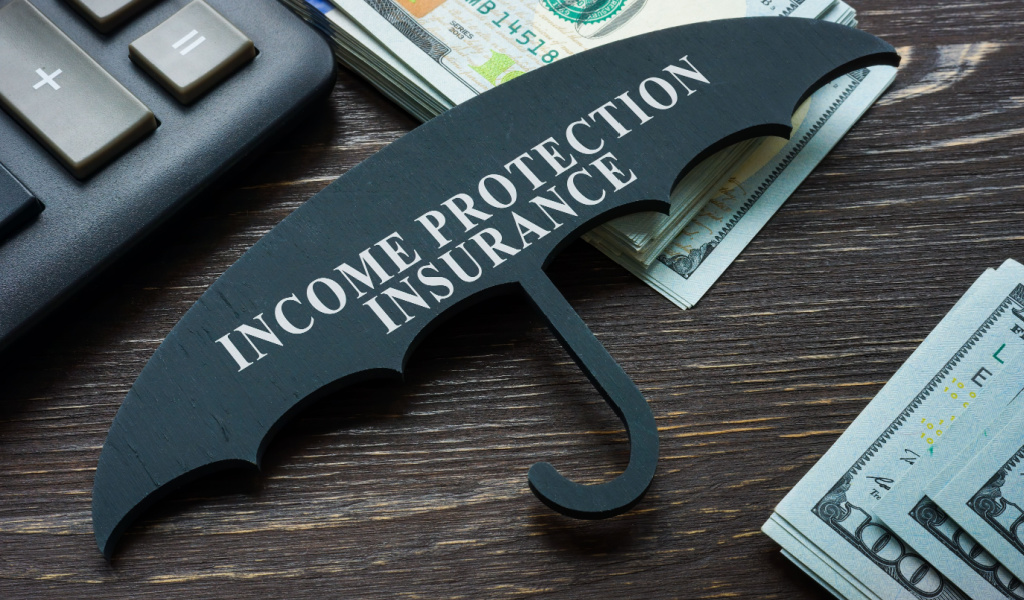If you lose your job due to an illness or an accident, having no backup plan can catapult you into financial ruin. A specific type of insurance that can help supplement lost income is called income protection insurance.
A long-term income protection plan ensures a consistent income until you retire or find another employment. This article will help you learn how it functions when you need it and the facts to consider before purchasing it.

Income Protection Insurance
One of Lifestyle Protector’s income protection choices is the income protector benefit. You may use it to make payments for any or all of your after-tax income. It is indeed a comprehensive and adaptable benefit. Based on your intended retirement age, this coverage could last up to 24 months or for the duration of your entire working life.
By adding income protection insurance to your Lifestyle Protector policy, you can add several additional benefits by increasing your coverage for various life stages, subject to underwriting.
Indeed, not all sorts of coverage are necessary at each point of your life. For that reason, you could require different kinds of coverage as you grow in your life. Additional protection for secondary income or performance bonuses may come under this category.
How Does Insurance for Income Protection Function?
- It replaces a share of your income regularly if you cannot work due to a medical condition, disability, or accident.
- It pays out until you return to work, until you retire, pass away, or the policy term ends.
- It generally replaces 50%-65% of your salary if you cannot work.
- Depending on the kind of policy and its definition of incapacity, most medical conditions that keep you from working for a brief or lengthy period are covered.
- You can claim it as often as necessary while the policy remains in effect.
Before the payments, there is generally an agreed-upon waiting (or “deferred”) period. The most common waiting periods are 4, 13, 26 weeks, or a year. The monthly premiums become more affordable the longer you wait. It is certainly not the same as critical illness insurance, which offers an upfront lump sum payment if diagnosed with a particular critical medical condition.
When Do You Need Income Protection Insurance?
You may assume that your company will continue to pay you a particular amount even if you cannot work due to a medical condition or an accident. In reality, employees generally switch to Statutory Sick Pay within six months because only a few firms offer employees sick leave benefits for over a year.
Based on your current savings status, losing a job can swiftly make you incapable of paying for necessities like utilities and your mortgage or rent. As a result, it is advisable to check with your company to find out what they will offer you in case you take leave due to an illness. On the other hand, it can be very tough if you are self-employed and do not have access to sick pay. Even if you do have an emergency fund to tide you over for a few months, anything longer can cause serious financial devastation.
What is the Cost of Income Protection Insurance?
Your situation and insurance coverage will determine how much you pay in monthly premiums. Several diseases, disorders, and situations are all covered by income protection policy. Therefore, it is crucial to compare the available options from different insurers to pick the one that suits you best.
The following factors impact the cost of your Income Protection Insurance.
- Your age.
- Your occupation.
- Desired income coverage percentage.
- The time frame (or ‘deferred’) before the insurance pays out.
- The number of illnesses and injuries covered.
- Your present state of health, weight, and family medical history.
- If you have a history of smoking.
Moreover, the cost of the insurance will also depend on whether you pay the following:
- A standard premium, which the insurer could raise over time.
- A guaranteed premium, which remains fixed for the duration of the policy.
Even though guaranteed premiums might start off costing a little more, several people value the security of understanding their future costs. However high they may be, at least you can be sure they aren’t going to increase!

Who Would Not Require Income Protection Coverage?
- If you are lucky enough to have savings to support yourself. (However, they may only last for a while.)
- If you are capable of living off of government benefits.
- If you have a spouse or family members willing to support you.
- If you have an early retirement planned.
- If you can make it on your sick pay, if you are covered by an employee benefits package that offers you an income for a year or more.
How to Purchase Income Protection Insurance?
Given that various insurers could apply different standards, and their premiums could differ, it is sensible to shop about and inquire from several providers before picking one.
The most effective way to ensure you get what you require is by considering a specialized broker or independent financial consultant. They will guide you through every aspect of available insurance and help you make the best choice. They generally expect a fee or a commission from insurance companies in return for their services.
Fortunately, for those whose insurance applications are rejected, there are specialized brokers and insurers, too. This can result from a medical issue or a standard policy not covering their job.
Things to Consider When Getting Income Protection Insurance
- Be frank about your medical history: If you fail to be honest or do not disclose necessary information in your application, you will not receive appropriate coverage.
- Select an appropriate amount of coverage: There are three primary levels of coverage, and they pay out depending on circumstances: own occupation, suitable occupation, and any occupation.
- Read the small print thoroughly: Be mindful of what is covered and what is not since many insurers might offer different definitions and exclusions.
- You can change your decision: Once you get the coverage, you have 30 days in case you change your mind and can receive a full refund.
- Keep an up-to-date cover: Since situations can change over time, consider checking your policy regularly to ensure that your insurance continues providing the protection you require.



